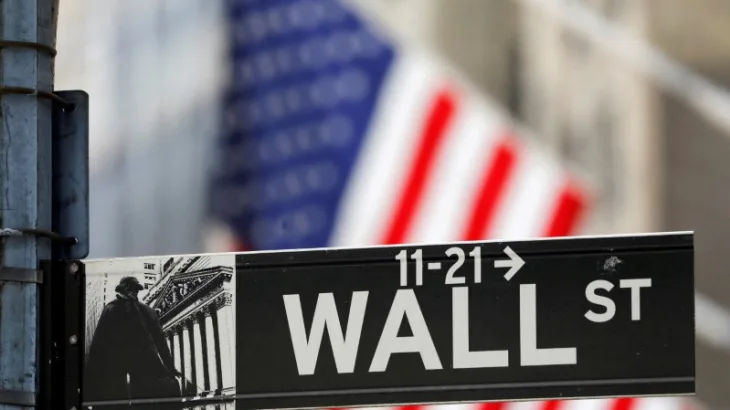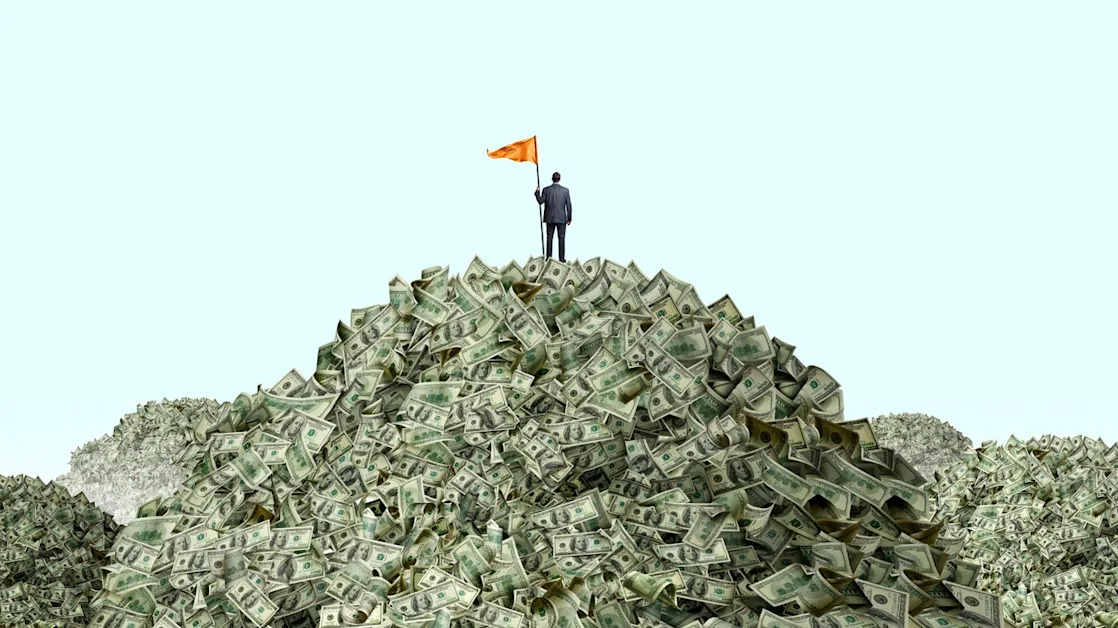What would you do if you had a six-figure salary? Perhaps you’d never cook another meal again or indulge in a monthly Thai massage and a Soho House membership to unwind from the stress that comes with being at your A game.
Here at The Good Life you don’t have to imagine what life at the top looks like anymore: Get real-life inspiration for how the most successful live their lives.
Today Fortune meets Steven Wang, the 23-year-old founder and CEO of the trading platform dub .
Before Wang was running the nation’s only regulated brokerage business, he had dreams of being an entrepreneur. His first venture was selling $1 origami paper cranes to his first-grade classmates; in middle school, he was making bank building websites and drop shipping products from his eBay and Amazon storefronts.
“I’d say I was born with an entrepreneurial knack,” Wang tells Fortune.
700,000
Ditching class to be his own boss, the Gen Z founder dropped out of school to create, raise funding for, and ultimately sell VR company Realism . By age 18, he was scooped up by Apple as an engineering product manager. Wang had a brief stint at Harvard University but wound up in his dorm room day-trading the semester away. At that same moment in time, in early 2021, brokerage trading apps were gaining steam with millions of Americans. Wang saw an opening and dropped out of the Ivy League institution—scarily enough, right before finals—to launch dub. It was an instant success, raising a $17 million seed round.
Today, dub has been downloaded by over 700,000 users, and Wang hopes to break one million by the end of this quarter. Notable investors in the company include Uber CEO Dara Khosrowshahi, Robinhood co-founder Nathan Rodland, Andreesen Horowitz general partner Alex Rampell, and CNBC contributor Dan Nathan.
The finances
Fortune: What’s been the best investment you’ve ever bought?
I’ve made a few excellent stock picks in my life that have returned over 100%+. I bought META shares on IPO and held, but the biggest percentage gain winner was an NFT I minted for free (this means you get an NFT right when it launches). All I had to pay was the gas price (this means the crypto fee it takes to process the transaction required to mint the NFT). This was just a few dollars worth of Ethereum.
Within 3 months, the NFT was worth more than $100,000. I didn’t sell then, and unfortunately, it came crashing down to less than $4,000 during the crypto crash of 2022. I waited another year (largely forgot about it). When I checked the price again, it was worth $20,000. I sold it on the spot. Ultimately, I made a 1000%+ return in a little over a year, but I could have made much more if I sold earlier.
And the worst?
One of the first stocks I bought when I was in elementary school was WPRT. I remember reading a SeekingAlpha article about the stock being the next big micro-cap discovery, and I went all in with $5K. It was everything I’d made up until that point.
I was so passionate about it—I even got my dad to put some money in. Over the next 2 years, WPRT lost almost 50% of its value. I felt so bad, especially since I’d convinced someone else to invest with me and lost them money. It was a real lesson in responsibility and accountability.
What are your living arrangements like: Swanky apartment in the city or suburban sprawling?
I live within New York’s financial district. I split a 2 bedroom apartment with my sister to save money. It’s a 10-minute walk from dub’s office, which is next to the New York Stock Exchange. Living close to the office is essential for me since I spend 90%+ of my day at work.
How do you commute to work?
Walking. I put my headphones on and do a walking meditation in the morning. In the evening, I’ll listen to relaxing minimalist music (i.e. Philip Glass).
What personal finance advice would you give your 20-year-old self?
I would advise myself to start investing early, like my father encouraged me to do. I realise 12 years old is very early, but in general, learning how to make your money work for you is smart. It’s not as complicated as most 20-year-olds imagine, and you can start off by investing very little. It can give you a lot of freedom later on in life.
Walking. I put my headphones on and do a walking meditation in the morning. In the evening, I’ll listen to relaxing minimalist music
What’s the one subscription you can’t live without?
Waking Up. It’s a mediation app that costs $150 a year. It’s expensive, but the guided meditations and wealth of spiritual and philosophical knowledge in the app have helped me make better decisions that’ve returned the $150 a year investment at least a thousand-fold.
The necessities
How do you get your daily coffee fix?
I stopped drinking coffee a year ago. I wanted to see if I could summon the energy to power through my day without the use of caffeine. I’m now in a place where I have an excellent morning routine and power napping strategy that takes me through my entire day full of energy, without any caffeine. The only time I’ll do anything close to coffee is the occasional pre-workout before a tough Barry’s workout or a long run.
What about eating on the go?
I eat the same thing every day for breakfast, lunch, and dinner. I try to eat at least 2 salads a day to maximize fiber load. In the morning, I’ll go to the Whole Foods salad bar to make a light salad. For lunch and dinner, I’ll visit a local deli or a Sweetgreen-type salad bar and order a heavy protein salad. I was on a Sweetgreen kick for a while, to the point where I had Sweetgreen more than 365 times in a year. These salads cost from $11 to $20 if you do extra protein.
How often in a week do you dine out versus cook at home?
I eat at restaurants perhaps once a week on average, and it’s almost always business-related. For a sit down meal, I’m loyal to 4-5 restaurants. My favorite all time restaurant to celebrate is Carbone in SoHo, NYC. The rest of the time I eat dinner at home with my family. Meals are an important part of our family life, and I try to plan my schedule so that we eat both breakfast and dinner together as a family.
How often in a week do you dine out versus cook at home?
I never cook. I eat every single meal out. I optimize time as much as possible, and every minute saved not cooking is another reinvested minute into my business.
Where do you shop for your work wardrobe?
My go-to pants are the ABC pants from Lululemon. My tops are either Zara turtlenecks (I rotate between dark green and gray colors) or Vuori polo shirts for a more relaxed, comfortable feel.
For shoes, I wear the same two: Hoka Bondi or Aldo Chelsea. It all depends on the weather and if I’m planning to exercise.
The treats
How do you unwind from the top job?
I work out at least 6 days a week. Each workout is a Barry’s session or a long run. If I have time and the gym has a pool, I love floating in the water. It forces me to be alone with my thoughts.
I also host small dinner parties at my favorite restaurants every month. I have a very small circle, so most dinners have the same attendees. But I love food—my grandma ran noodle restaurants in China, so I grew up seeing how a piping hot bowl of bone broth rice noodles can bring a smile to anyone’s face on a frigid winter day. I know firsthand the power of good food in bringing humans together and creating immense joy. It's a feeling I love creating with the people I care the most about.
Take us on holiday with you, what’s next on your vacation list?
I stay in NYC for 99% of my holidays. When I have downtime, I don’t like much disruption. I enjoy alone time where there is no calendar to adhere to.
I went to Europe for the first time last year—Barcelona for 4 days. It was my first vacation since starting dub. I’ve rarely traveled and have only been out of the country a handful of times. Growing up, we couldn’t afford to travel outside of visiting home in China every few years, and these days I don’t have the time, or emotional energy, to go plan a vacation.
However, my dream one day is to move to Paris for a few months and live the morning routine my favorite existentialist philosophers did (i.e. Camus, Sartre): spend every morning in the famous existentialist cafes and sip on cappuccinos, apricot cocktails, and ponder life.
How many days annual leave do you take a year?
1 or 2.
Here at The Good Life you don’t have to imagine what life at the top looks like anymore: Get real-life inspiration for how the most successful live life.
Fortune wants to hear from leaders on what their “Good Life” looks like. Get in touch: emma.burleigh@fortune.com





